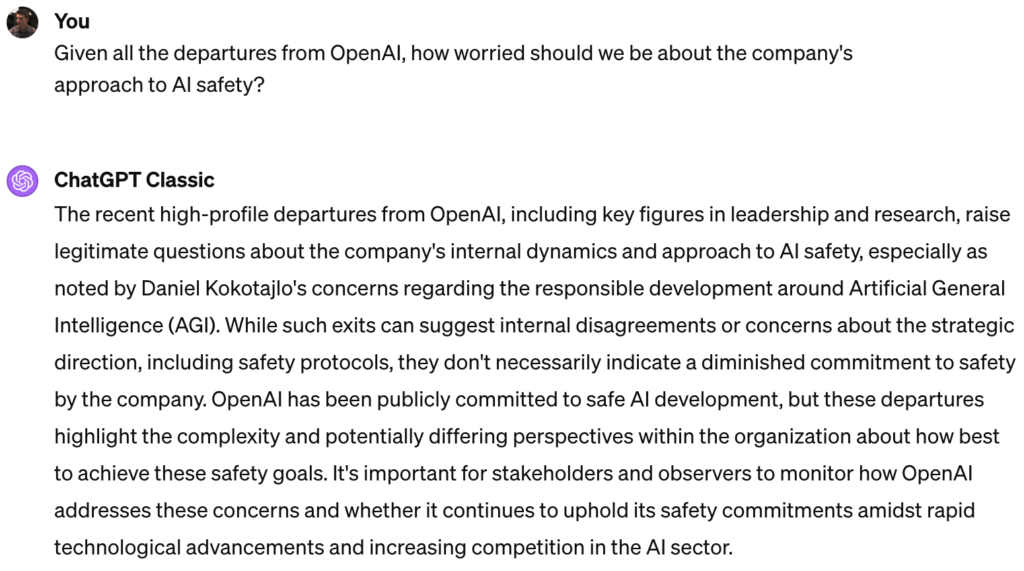Welcome to the newest edition of FindBiometrics’ AI update. Here’s the latest big news on the shifting landscape of AI and identity technology:

Everyone hates Apple’s new iPad ad, but the company’s flagship new tablet quietly packs a punch in its M4 chip. It is designed for AI processing and can perform 38 trillion operations per second. Analysts are impressed by its flexible architecture and enhanced power efficiency, which will allow it to bring many AI tools that run in the cloud to consumers’ personal devices.
Microsoft is preparing to launch its own in-house AI model, “MAI-1”, which will reportedly rival those of Google, Anthropic, and, awkwardly, OpenAI, in which Microsoft holds a multi-billion-dollar stake. That having been said, it will have 500 billion parameters – the adjustable elements that an AI model learns from training – whereas OpenAI’s GPT-4 has over a trillion.
OpenAI has seen a bunch of high-profile departures, including VP of People Diane Yoon, Nonprofit and Strategic Initiatives head Chris Clark, and researchers William Saunders and Daniel Kokotajlo. The reasons behind all of the departures aren’t yet fully clear, but Kokotajlo said in an online post that he had been “losing confidence that [OpenAI] would behave responsibly around the time of AGI,” a reference to the idea that AI is heading toward human-like “Artificial General Intelligence”.
DatologyAI has raised $46 million in a Series A funding round, just a few months after announcing an $11.65 million seed round. The startup was founded by former researchers and engineers from Google’s DeepMind, Twitter, and MosaicML, and pitches itself as a kind of consultancy that helps developers curate the datasets on which they train their AI systems.
Taiwan Semiconductor Manufacturing Co. saw a 60 percent jump in sales last month, thanks to strong demand stemming from the AI boom. TSMC is the manufacturer of Nvidia’s most advanced AI training chips, and it makes semiconductors for Apple and AMD.
Tokyo Electron, which makes the equipment that makes semiconductors, expects AI demand to push sales up 20 percent over the year to March. The company provides chipmaking equipment for TSMC, Samsung, and Intel, and is setting aside ¥250 billion for R&D this year, in anticipation of double-digit growth next year.
South Korean chip designer DeepX co. has raised about $80 million in a funding round led by SkyLake Equity Partners, which is headed by a former Samsung exec nicknamed “Mr. Semiconductor“. (It’s probably more catchy in Korean.) DeepX makes semiconductors for AI systems that operate outside of data centers, such as in robots.
Senate Majority Leader Chuck Schumer is working on a framework to address the risks and benefits of AI, aiming to foster targeted, piecemeal legislation that can emerge more quickly than “one huge comprehensive plan”. Part of the rationale is geopolitical. “If we do nothing, China with a whole different system – their AI is interested in things like facial recognition and surveillance and stuff like that – they could get ahead of us,” he said.
The chatbot’s take: ChatGPT simply refuses to be an AI safety alarmist. Maybe it’s biased.

–
May 10, 2024 – by Alex Perala







Follow Us